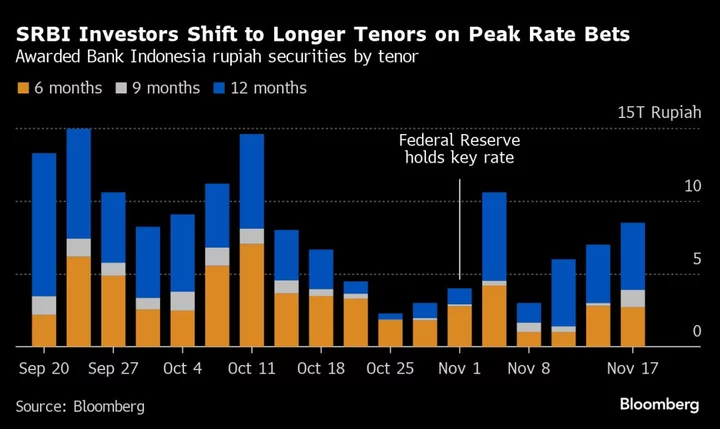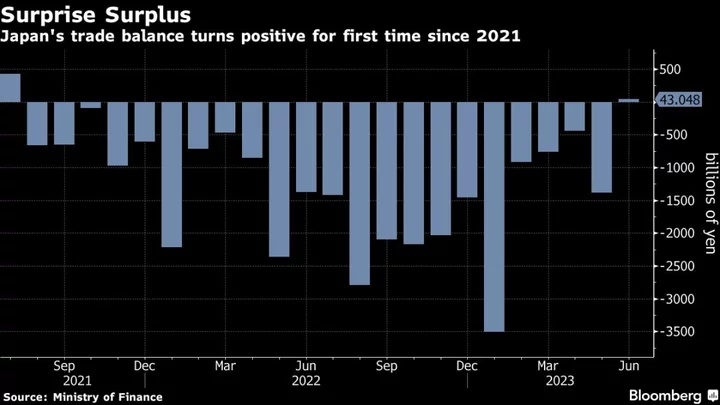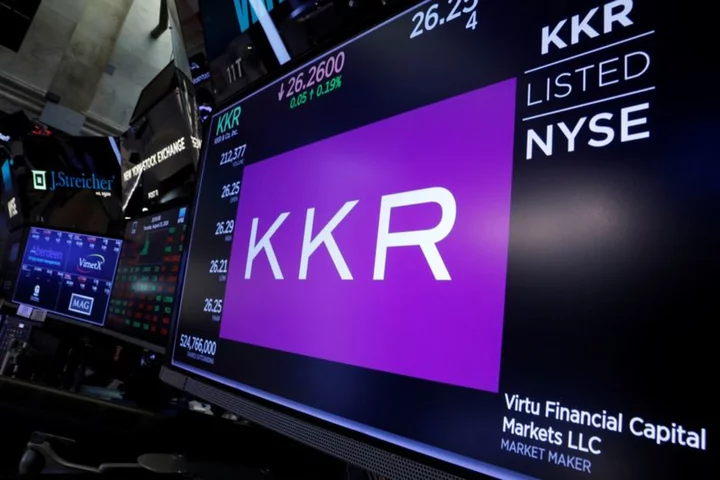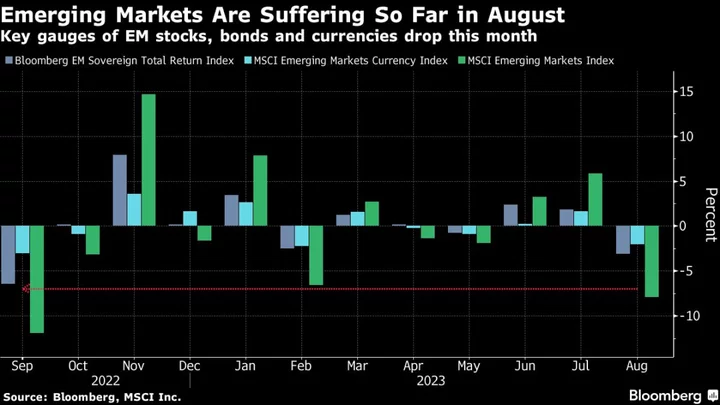Bank Indonesia’s first auction of its dollar securities, meant to attract foreign inflows that would support the rupiah, was oversubscribed.
The central bank sold $236.5 million in the Tuesday offer of FX-denominated securities or SVBI, exceeding its $200 million target. It awarded $168 million for the one-month paper at a weighted average rate of 5.45% and $68.5 million of the three-month note at 5.6%.
Bank Indonesia launched its newest monetary instrument at a time of shifting market appetite, with the dollar on the retreat amid bets the Federal Reserve has reached its peak rate. The rupiah has rallied nearly 3% this month as November’s bond inflows reach $610 million as of Friday.
The central bank’s earlier tool, the rupiah-denominated securities or SRBI, has also seen renewed interest in a sign of the changing sentiment. Bids at the Nov. 17 auction soared to 21.6 trillion rupiah ($1.4 billion), the highest since the September debut. Investors’ preference has even switched to the longest tenor of 12 months as they sought to lock in high interest rates before a Fed pivot.
The Tuesday auction of FX securities didn’t offer the six, nine and 12-month tenors.
Despite the waning global uncertainty, Bank Indonesia will likely keep the dollar notes as one of its go-to instruments to attract foreign inflows in case of another rupiah selloff. Policymakers have said that they will use both the SVBI and the SRBI to stabilize the currency without having to resort to interest-rate hikes or market intervention that would deplete the foreign reserves.
Still, it might take some time before the dollar notes make an impact on the rupiah, according to Winson Phoon, head of fixed-income research at Maybank Securities Pte in Singapore. “The success of SVBI issuances could help improve onshore dollar liquidity but we need to observe the level of demand over a longer period to assess its effectiveness,” he said.
The central bank is expected to keep its key rate on hold at its Thursday meeting after a surprise quarter-point hike in October.
--With assistance from Matthew Burgess.
(Updates with analyst comment)









